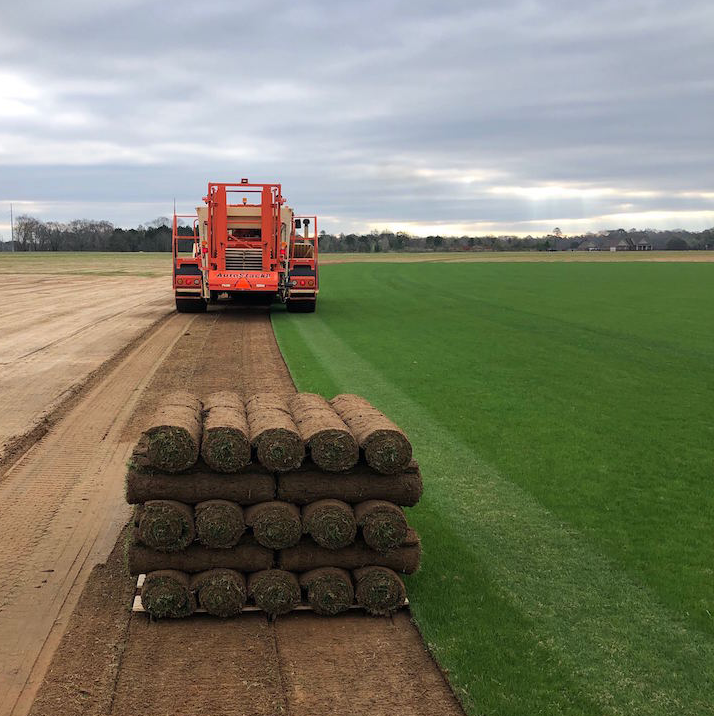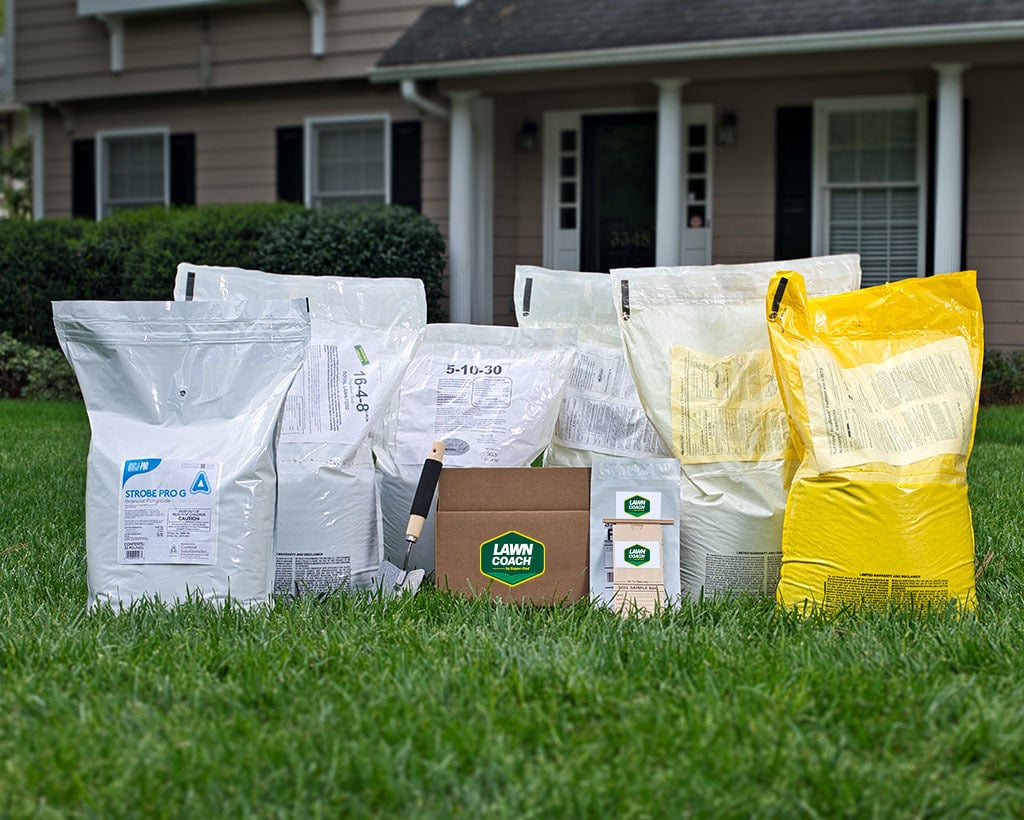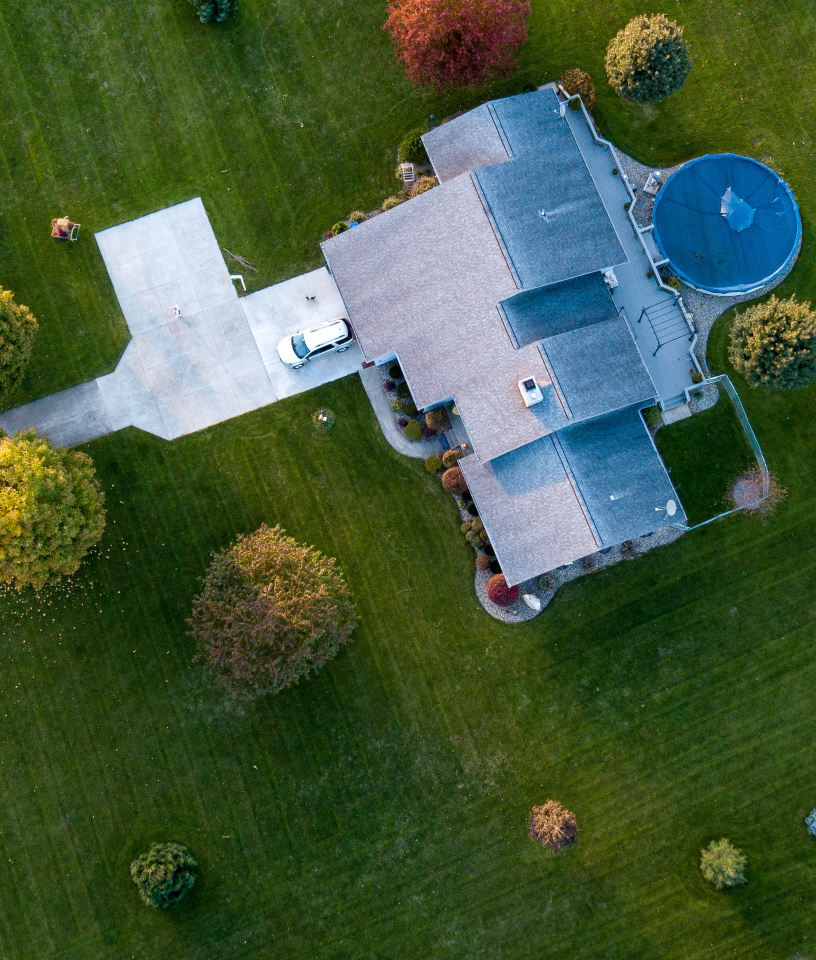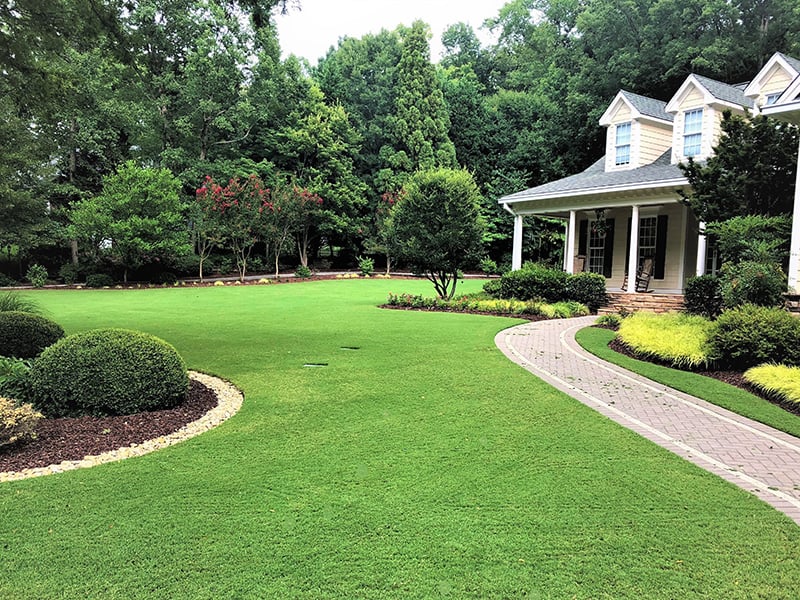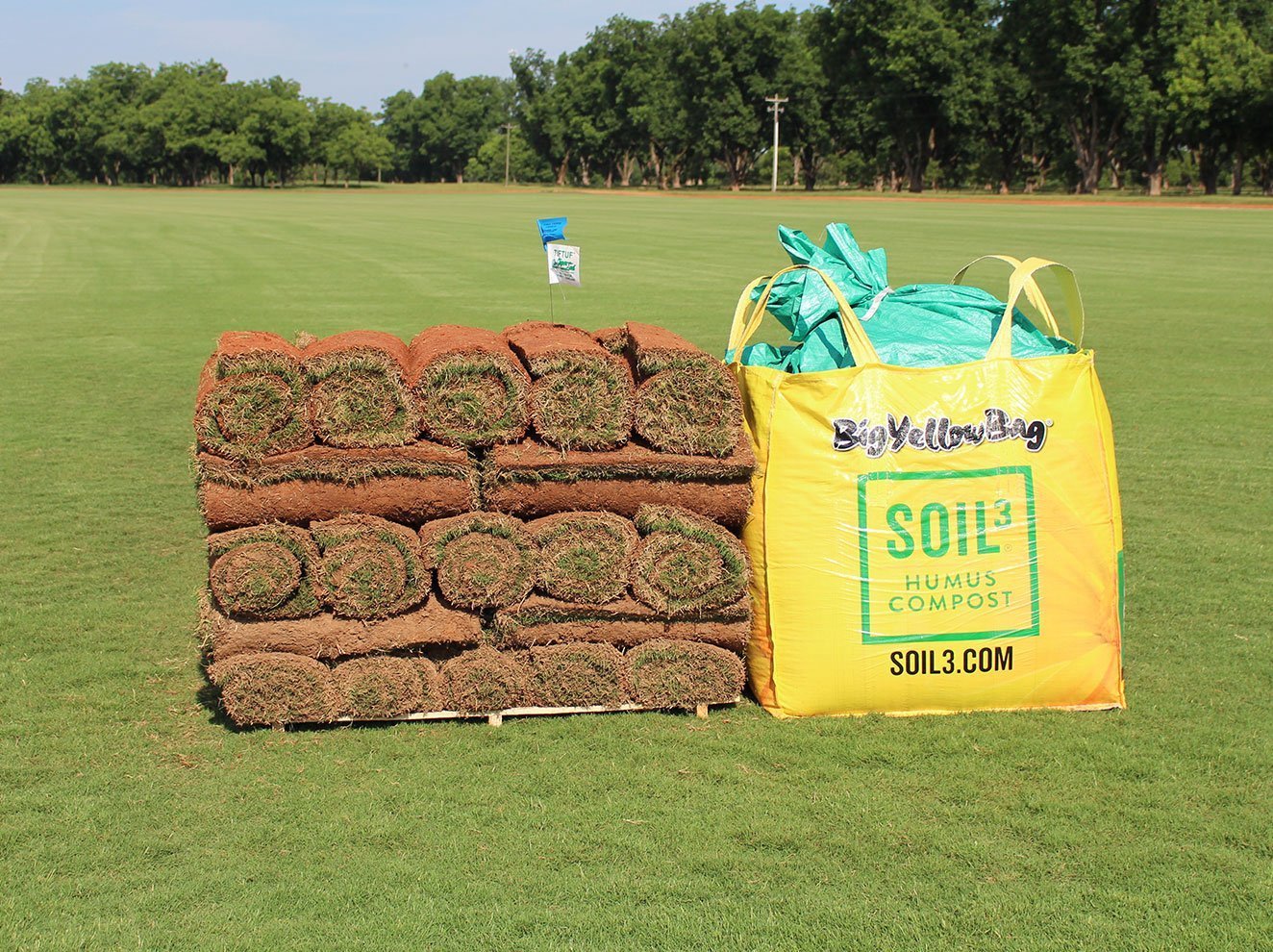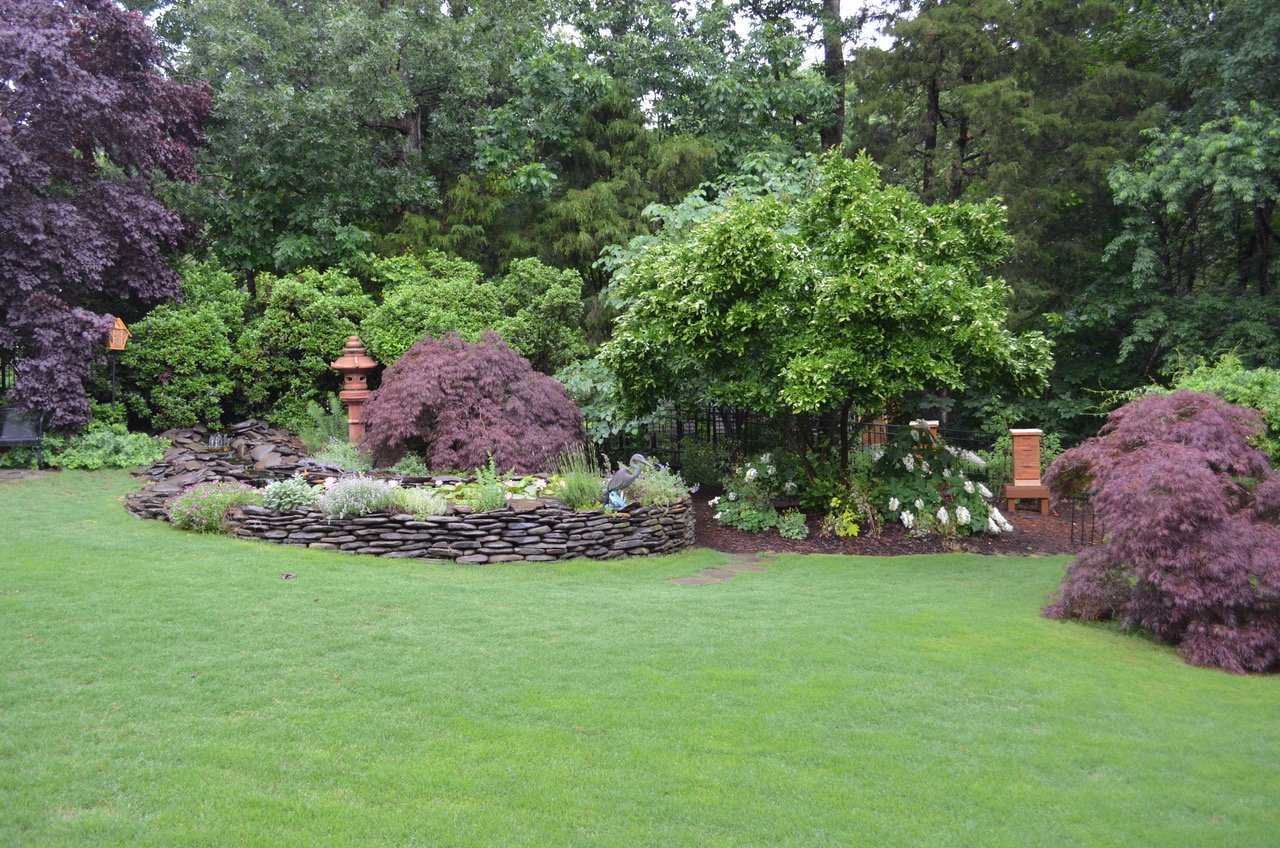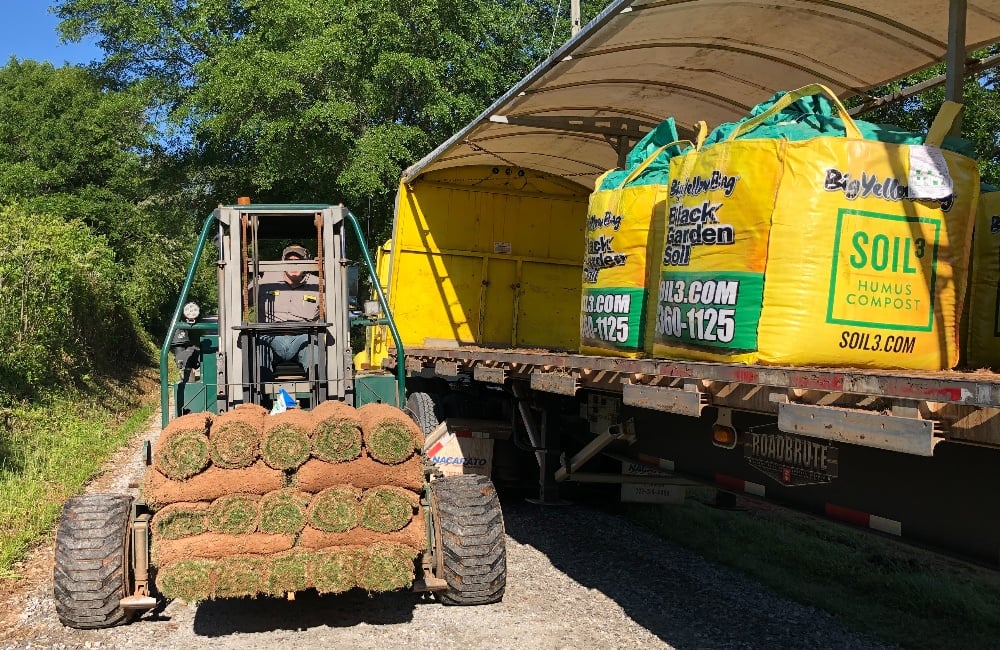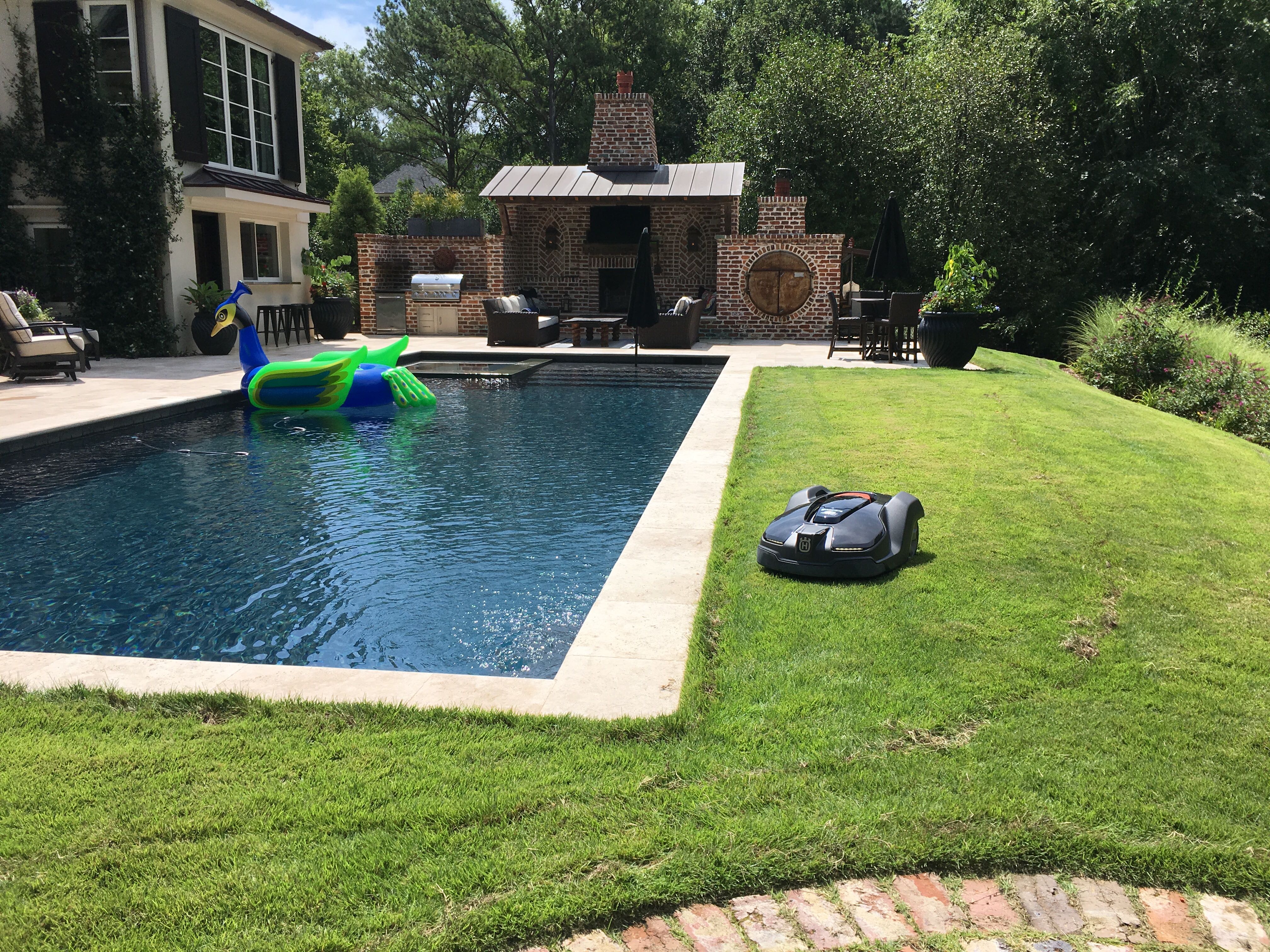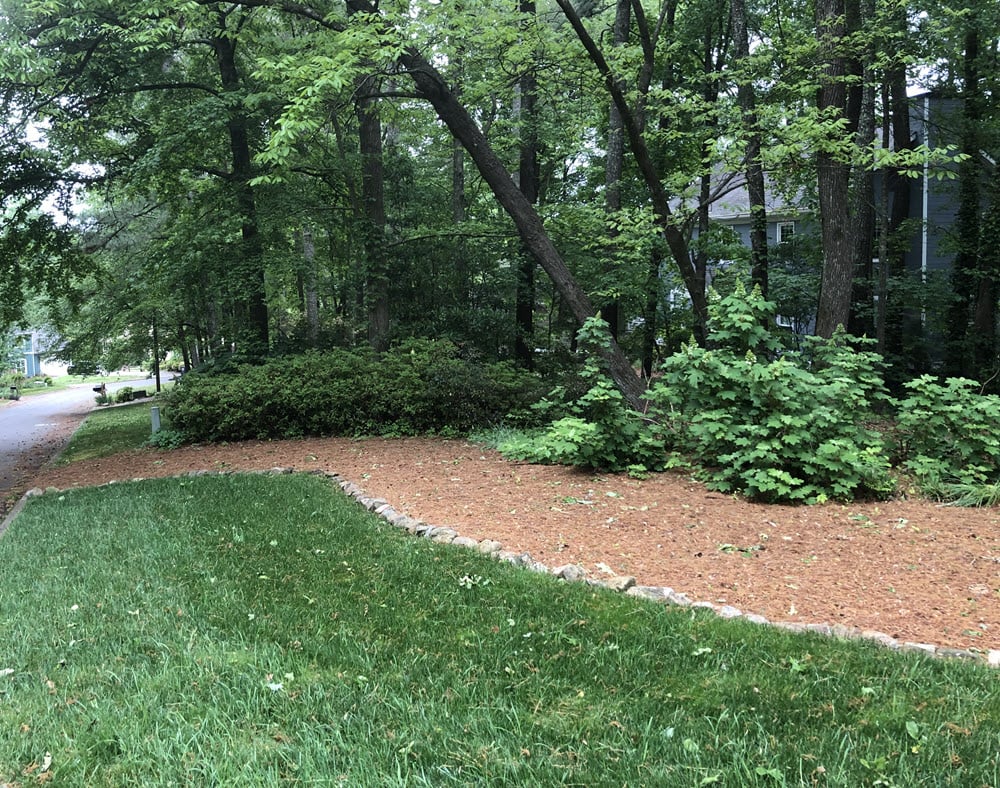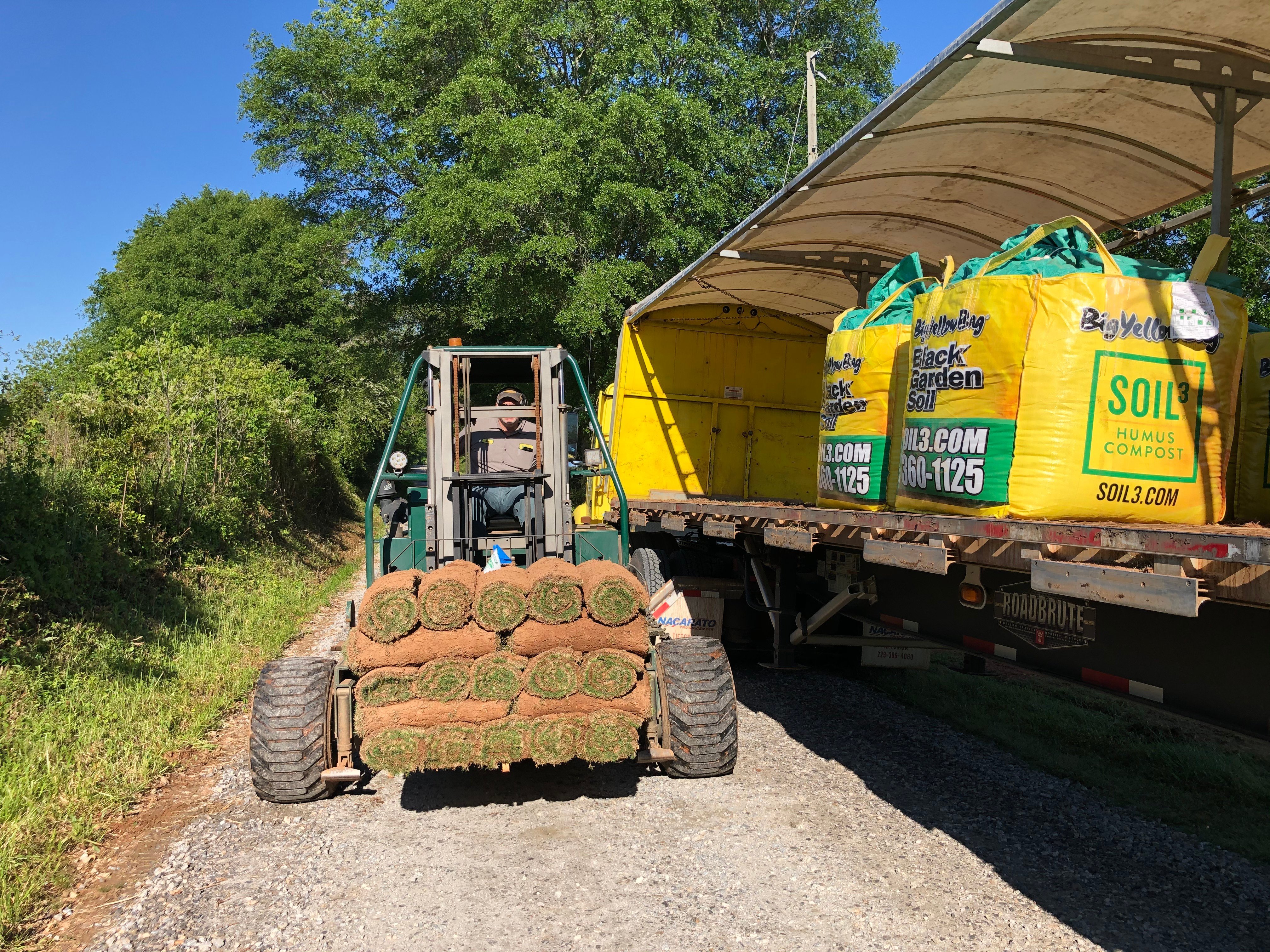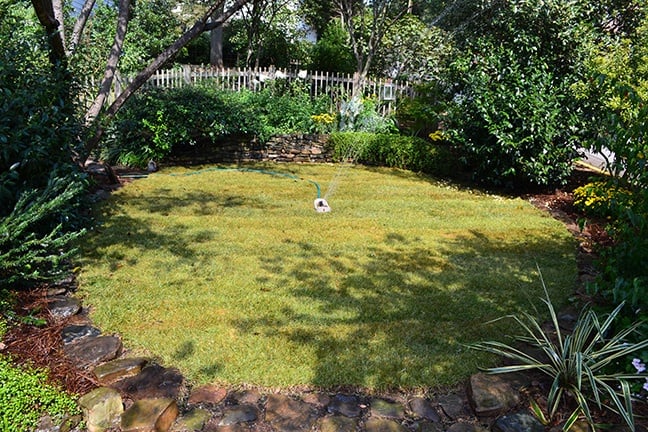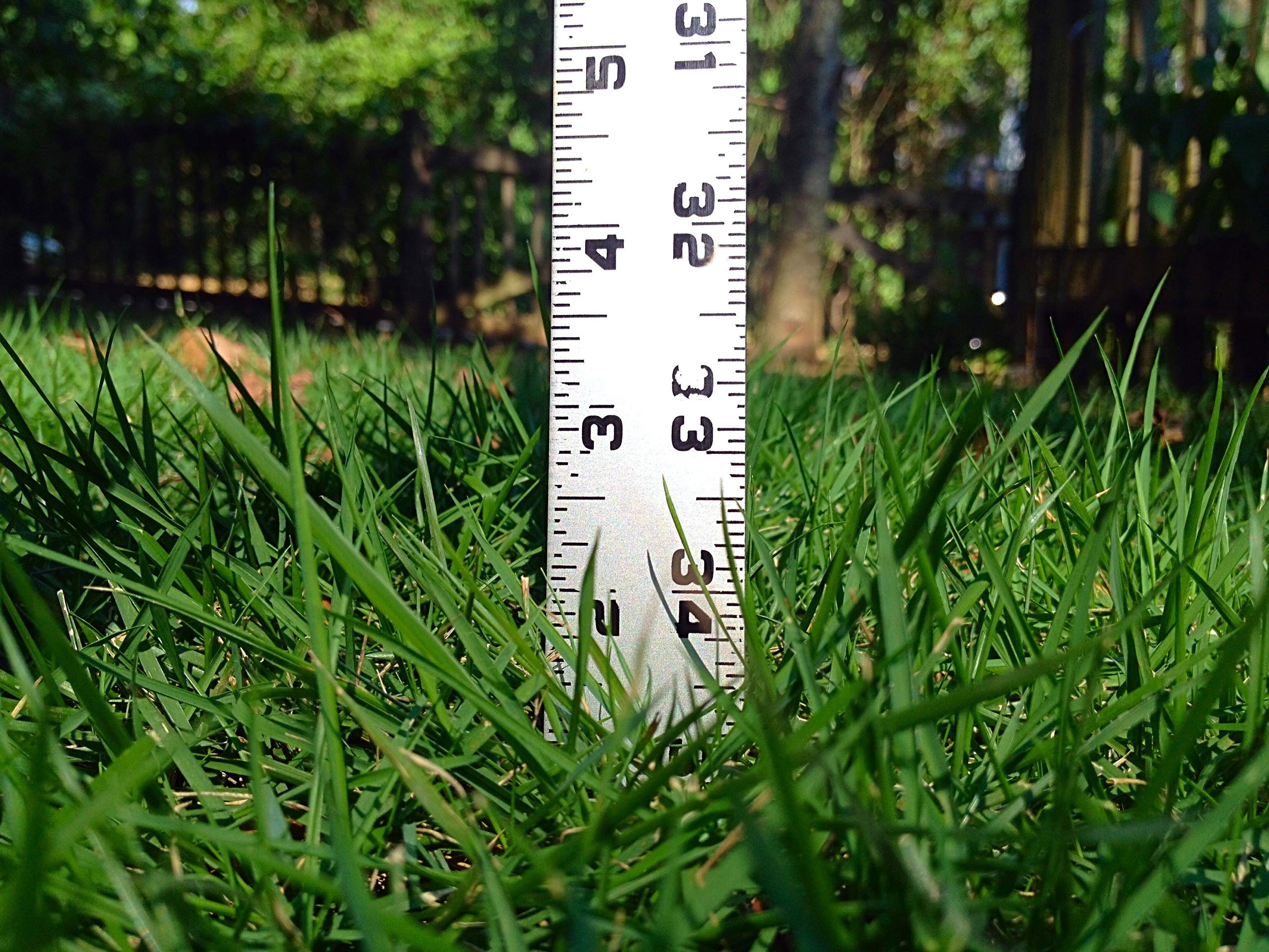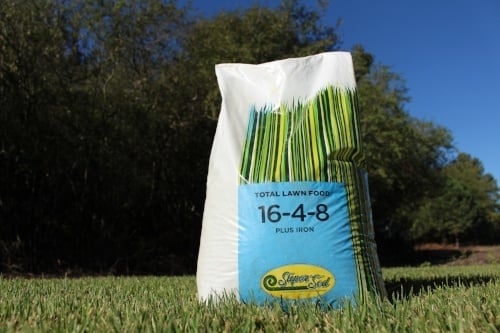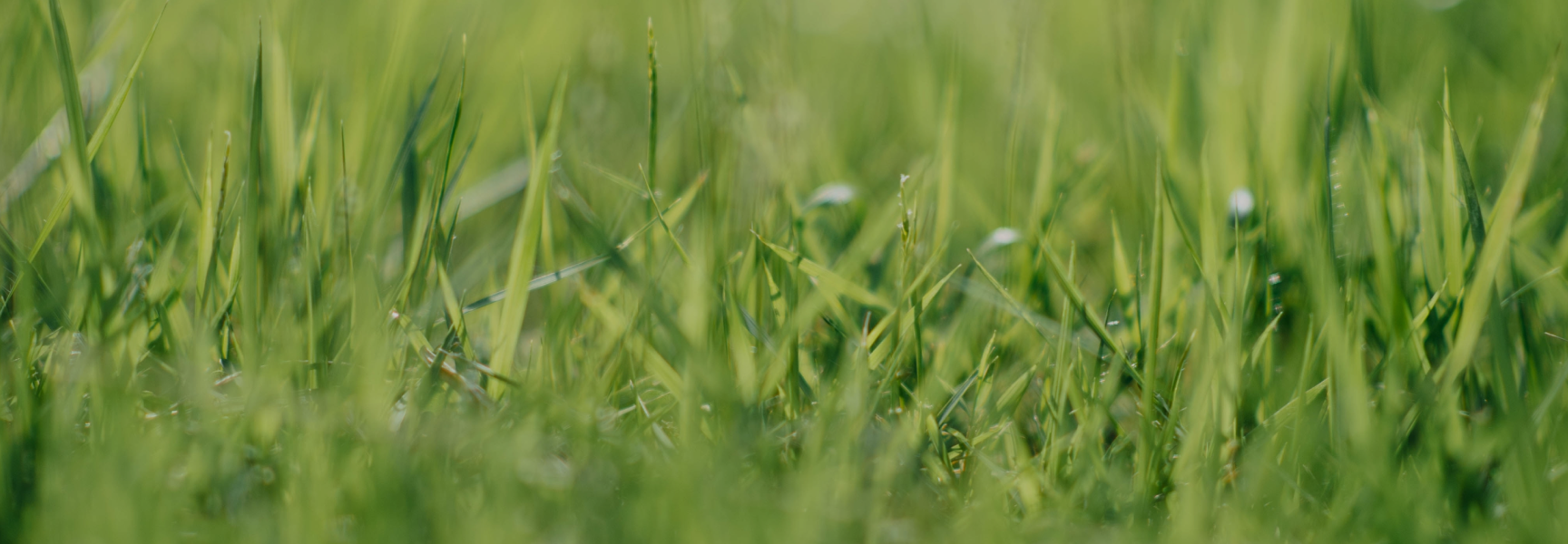
Bermuda Sod
Bermuda sod has fewer seed heads
Bermuda sod has better color & texture
Sod offers instant curb appeal
Bermudas offer high tolerance to foot traffic
Sun or Shade? ☀️⛅️
Mostly sun, but it depends on the variety
Bermuda is a Warm-Season Grass
Available only as sod, TifTuf and Tifway can be installed all year long, even during the winter when they are dormant. As hybrid Bermudagrasses, they are not available to grow from seed.
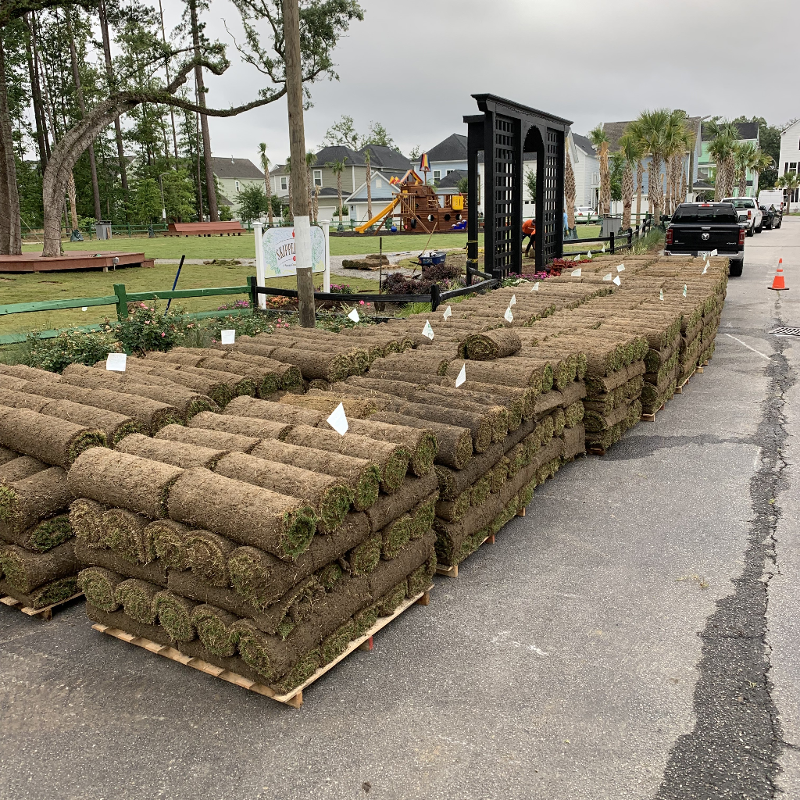
TifTuf is superior to all other lawns for drought tolerance
Bermudas naturally survive drought by going dormant, however TifTuf has deeper roots and sails through droughts without going dormant
TifTuf maintains turf quality under drought stress; it does not go drought-dormant like other warm season lawns. Rather, it holds acceptable green color, even during the tough droughts we endure here in the Deep South.
Pictured: Tifway (left) and TifTuf (right) during prolonged drought showing a clear line of drought dormancy and beautiful green.
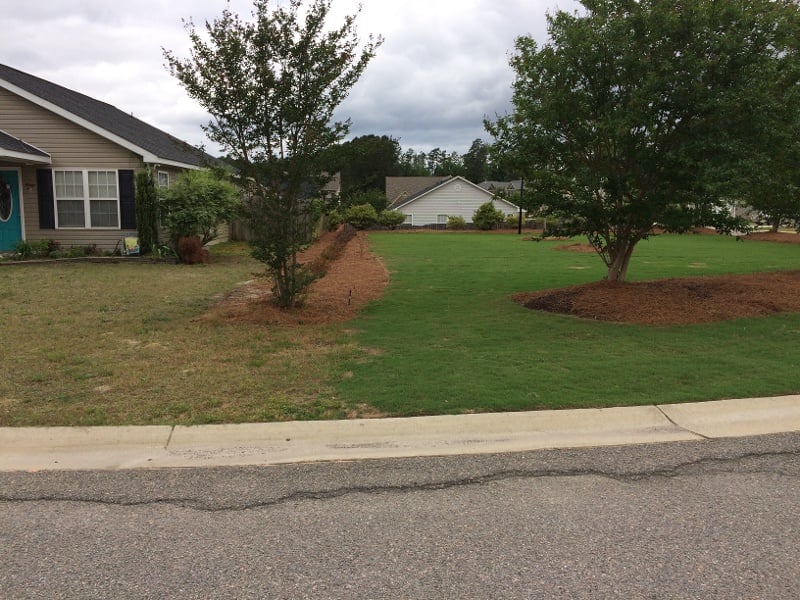
Other Bermuda Sod Assets
- Fine-textured & bright green
- Fast establishment - instant curb appeal
- Fast growth and fast recovery from high foot traffic
- Fast growth both vertically (height) and laterally via spreaders
- The spreaders, also called stolons, are a self-healing asset - they spread to fill in bare spots due to wear and tear
- As such, Bermudagrass is a great choice for lawns and sports turf where people like to play, exercise, and recreate
- Tolerates extreme heat
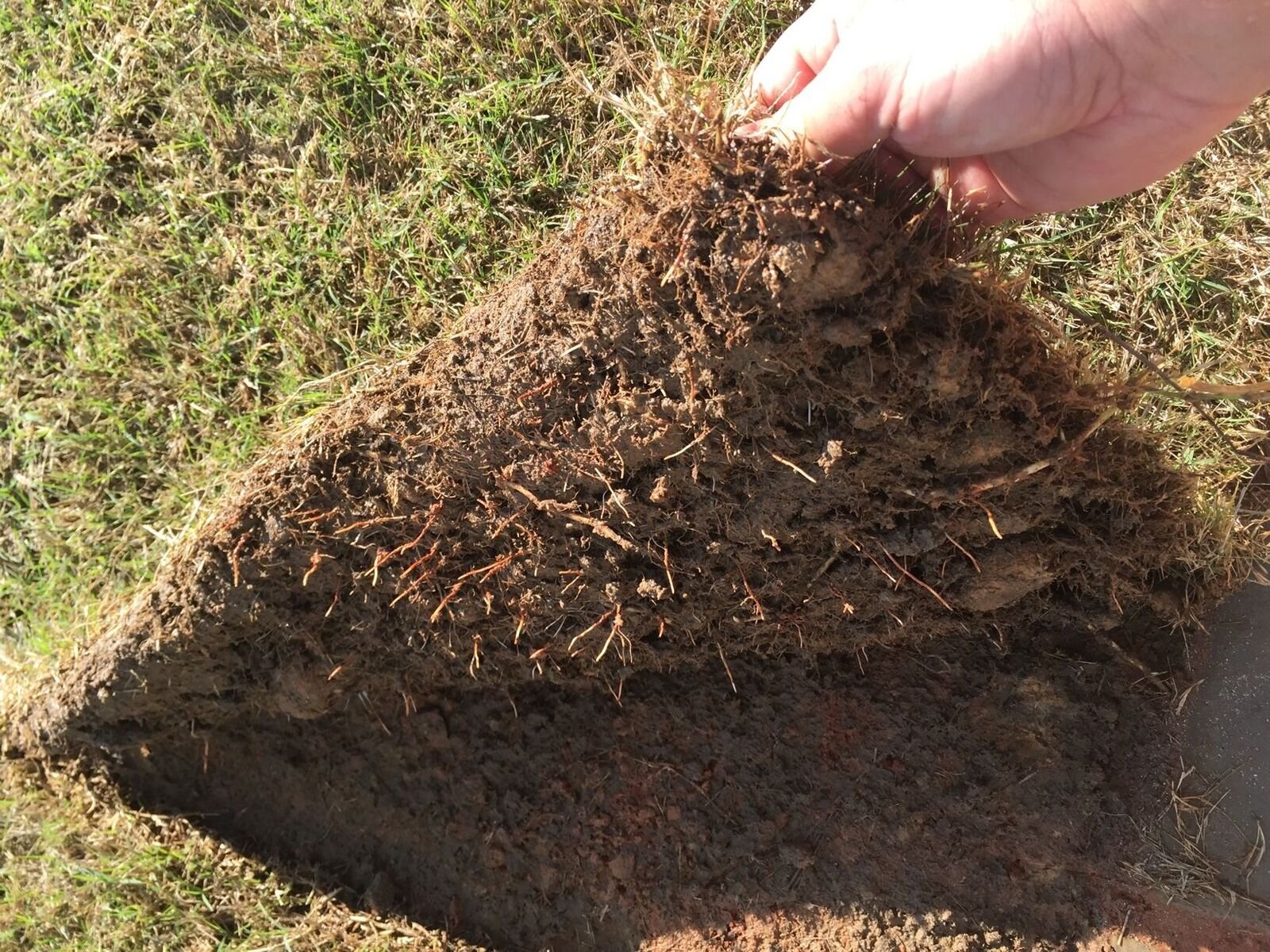
Where to Use Bermudagrass
- Residential lawns & commercial landscapes
- Large industrial or municipality complexes
- Public & private parks
- Medians & roadsides
- Sports turf from golf to equestrian sports to football, soccer, rugby & baseball
- Around pools
- TifTuf is one full zone hardier than other Bermudagrasses - range is Zone 6b to 11a on the 2012 USDA Plant Hardiness Zone Map or Zones 1-3 on the Turfgrass Hardiness Map
Why choose Bermuda sod instead of seed?
Various strains of Bermudagrass were imported from Africa 100's of years ago. Since the 1960's, improved strains were bred to be prettier and tougher. These improved hybrids are superior to the seeded types and can only be purchased and planted as sod. Hybrid Bermuda sod is superior to the seeded types in these aspects:
- Bermuda sod types have a thinner leaf blade, thus a fine texture
- Sod types have a better green color and are more aesthetically pleasing
- Sodded types grow denser than those available from seed
- Bermuda sod has fewer seed heads than seeded types
